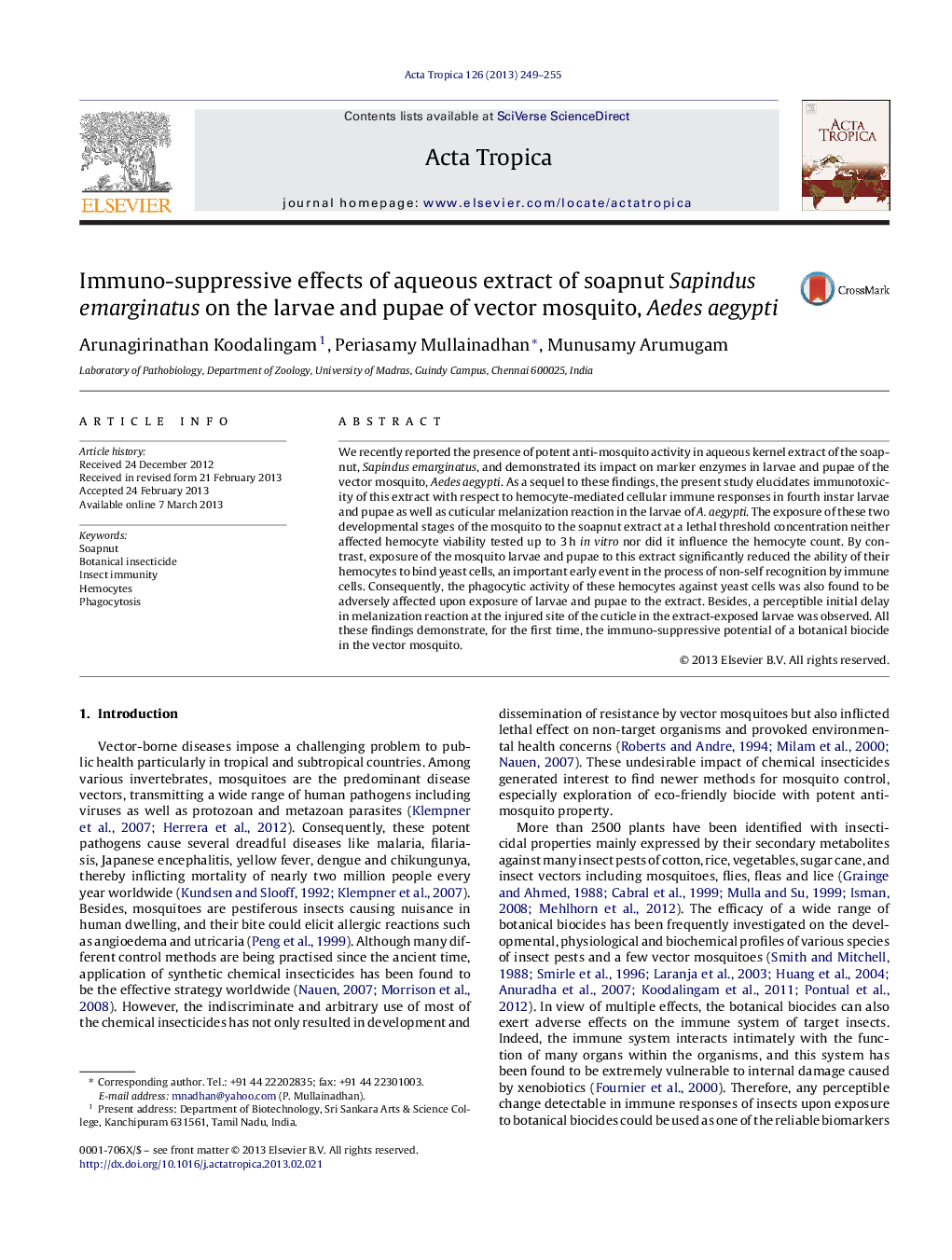| کد مقاله | کد نشریه | سال انتشار | مقاله انگلیسی | نسخه تمام متن |
|---|---|---|---|---|
| 3393850 | 1221407 | 2013 | 7 صفحه PDF | دانلود رایگان |

• Immuno-toxicity of soapnut extract was tested in larvae and pupae of Aedes aegypti.
• Exposure to the extract did not alter viability and count of hemocytes.
• This exposure adversely affected hemocyte-mediated cellular immune responses.
• The ability of hemocytes to recognize and phagocytose foreign targets was reduced.
• Delayed expression of cuticular melanization in injured larvae was also recorded.
We recently reported the presence of potent anti-mosquito activity in aqueous kernel extract of the soapnut, Sapindus emarginatus, and demonstrated its impact on marker enzymes in larvae and pupae of the vector mosquito, Aedes aegypti. As a sequel to these findings, the present study elucidates immunotoxicity of this extract with respect to hemocyte-mediated cellular immune responses in fourth instar larvae and pupae as well as cuticular melanization reaction in the larvae of A. aegypti. The exposure of these two developmental stages of the mosquito to the soapnut extract at a lethal threshold concentration neither affected hemocyte viability tested up to 3 h in vitro nor did it influence the hemocyte count. By contrast, exposure of the mosquito larvae and pupae to this extract significantly reduced the ability of their hemocytes to bind yeast cells, an important early event in the process of non-self recognition by immune cells. Consequently, the phagocytic activity of these hemocytes against yeast cells was also found to be adversely affected upon exposure of larvae and pupae to the extract. Besides, a perceptible initial delay in melanization reaction at the injured site of the cuticle in the extract-exposed larvae was observed. All these findings demonstrate, for the first time, the immuno-suppressive potential of a botanical biocide in the vector mosquito.
The aqueous kernel extract of soapnut Sapindus emarginatus with potent anti-mosquito property exhibited immunotoxicity as evident from its adverse effects on hemocyte-mediated immune responses of fourth instar larvae and pupae of Aedes aegypti.Figure optionsDownload as PowerPoint slide
Journal: Acta Tropica - Volume 126, Issue 3, June 2013, Pages 249–255